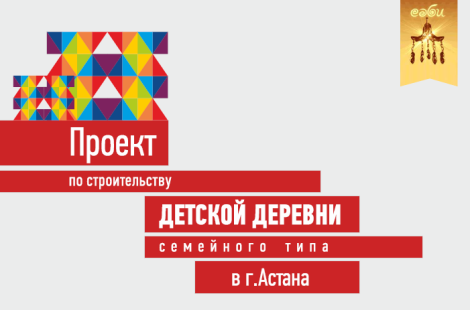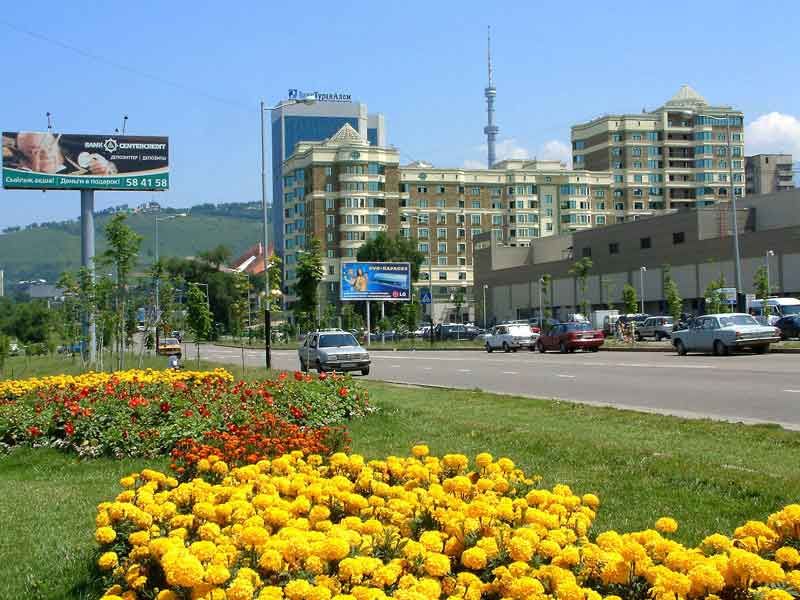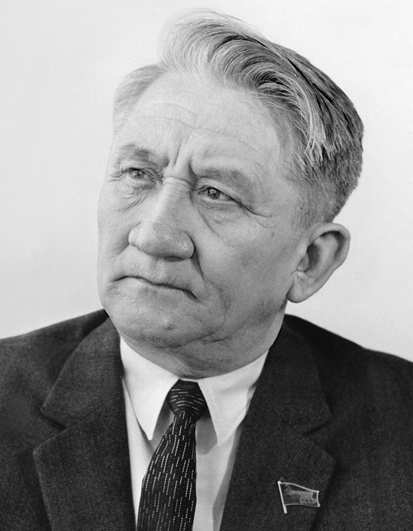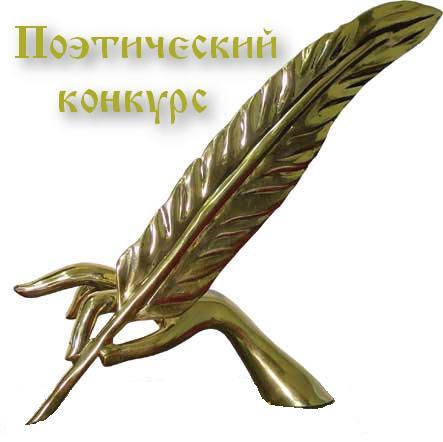 Since 1986 one of the Almaty streets, which is situated on the west from Navoi street and on the north from the First President’s Park of the Republic of Kazakhstan, was named after Gabiden Mustafin.
Since 1986 one of the Almaty streets, which is situated on the west from Navoi street and on the north from the First President’s Park of the Republic of Kazakhstan, was named after Gabiden Mustafin.
Mustafin Gabiden (1902–1985)
Famous Kazakh theorist of literature Takhavi Akhtanov named Gabiden Mustafin “The writer of newborn people”. The word “revival” conforms not only social and cultural shifts which took place in the Kazakh society, it gave us the pleiad of unique and original talents, Gabiden Mustafin belonged to the same pleiad. “Powerful wave of spontaneous people’s talents flushed, fading art of nomads, already covered by ash, sparked off as the bright flame”.
Gabiden Mustafin, people’s writer of the Republic of Kazakhstan, was born on November 26, 1902 in a modest family of a herdsman, he spent his childhood in the overgrown with caragana locality, called Sartobe, at the bottom of Zhauyr-Tau mountain ( presently Telmanovsky district of Karaganda region). The name of this place is translated in the Russian language as “yellow bald mountain”. The most cheerful impression of his childhood was the rapid and wayward Nura steppe river.
From thousand-verst vastness surrounding steppes his small native land was notable only for the Spassky copper plant, which attracted the inquisitive boy’s attention.
Mustafin’s father knew Arabic and wanted his son be well-educated too. Gabiden learned reading and writing from the local mullah. But the innate talent, about which he did not know, invoked Gabiden to get knowledge. He started to visit the kind man more often, timekeeper of plant Dzhusup Maukumov, who helped Gabiden to master the Russian language. It was the happiness. Russian speaking Kazakh teenager Gabiden was accepted in the fourth form of the Russian-Kazakh school of Spassky Plant. He studied eagerly, read a lot, was on friendly terms with Russian boys, and learned a lot which he did not know earlier. Gabiden finished school as one of the best pupils and on returning to his native village he understood that he could not live without books.
“In the spring of 1925 I arrived in Qyzylorda, the capital of Kazakhstan. But I did not manage to enter an educational institution, that is why I had to work”, G. Mustafin writes in his autobiography. To earn something for living he entered (his literacy was of use) a secondary post of record clerk in the Supreme Court of the Republic. Suspecting nothing he started to read a great and full of wisdom book of people’s life, where almost each page is the discovery. His obligations did not include learning of the received in the Supreme Court complaints, petitions, applications, but he not only registered all of them, but insatiably read and remembered them with cordial insight.
Working in the Supreme Court Mustafin assumed the habit to take the interest in newspapers. He started to aspire to writing. As the hundreds of Soviet writers he started from the work of string correspondent, wrote articles, interviews, feuilletons and essays for “Enbekshi Kazakh” newspaper. During this period he wrote his first story “Sarsen and Bokash”.
To spill printer’s ink Gabiden Mustafin started since 1927, the first storybook called “Yer-Shoiyn” was published in 1929. Stories about class struggle in the Kazakh village, about conflicts of rich landowners and poor peasants were written not by the writer but a string correspondent. Mustafin understood that newborn native people do not need ersatz fiction, they need smart narrative, emotional, weighty prose, which he could not create because of the lack of experience. Mustafin started “to study in his universities of life”. “To see everything with his own eyes, to have firsthand knowledge, to learn and to feel everything what feel the characters of my future books”, reasoned talented Gabiden Mustafin.
He returned to his native land in the spring of 1930, when in Karaganda started the coal period. Gabiden worked as a ground-man, hodman, laborer, apprentice of the locksmith. Only three years later he stood up to the file bench and lathe machine. In 1933, by order of the Board of Karaganda, the turner Mustafin was promoted to the post of the executive secretary of the miner news desk “The proletariat of Karaganda”. Soon he was transferred to work in the city of Novosibirsk, where the newspaper “Kyzyl – Tu” started to appear in the Kazakh language. Seven or eight years of journalistic work of Gabiden Mustafin can be named as the period of literary height’s storm, the period of approach to professional writing. It is difficult to draw the line where his journalism ended and where the literature began.
In 1938, the thirty-six years old Gabiden Mustafin came to Alma -Ata, where he became to collaborate as an editorial staff in the literary magazine “Adebiet Maidan” and later as the editor in chief of this magazine. What a long road from the string correspondent to the editor in chief of the Republican magazine is passed – and what a tremendous work of self-cultivation has been done over the years!
In 1940, which was a memorable year for Mustafin, his first novel “Life or Death” was published in Alma-Ata. This was the birth of the writer. The subject matter of the novel is the demonstration of the industrial development of Karaganda and its transformation into a powerful coal boiler room.
Then the novel “Shiganak” was published in 1945. In the book is shown the life of the Kazakh farm “Kurman” from the beginning of collectivization to the first months of the Great Patriotic War.
In the postwar period there were published several important works of Kazakh prose, among them a prominent place occupied the novel of G. Mustafin “The millionaire” (1948), receiving a positive assessment in the national press and the republican Jambul award. The subject matter of this novel is the solution of kolkhoz village’s problematics. The novel describes the life of one of the many millionaire kolkhozes.
The novel of G. Mustafin “Karaganda”, published in 1952, is dedicated to the working class. It is a piece of work, which describes the construction process of one of the country’s major centers in the steppe region, a piece of work, telling about how former pastoralists became skilled mining craftsmen and describing the process of formation of another consciousness and outlook on public life as a result of game changer.
In 1959 was published the novel of Gabiden Mustafin “After the storm”, which reflects the time that in the history of our country has been called NEP. Failing to understand the essence of the NEP, the village ruling elite before the revolution – rich landowners, disposers of volostes, the biys accepted it as a return to the old time and restarted cramping poor. However, their actions were exposed, because the wheel of history does not turn back.
Mustafin’s works are a part of the spiritual wealth of the Kazakh people; they are well known to a wide circle of readers, are read with interest and have been translated into many languages. Gabiden Mustafin, as the chairman of the Union of Writers of Kazakhstan (1953-1957), the first secretary of the Union of Writers of Kazakhstan (1962-1966), made an important contribution to the development of literature in Kazakhstan.
The source of this article is the site:
http://tarih.spring.kz/ru/history/postwar/figures/mustafin/









Recent Comments